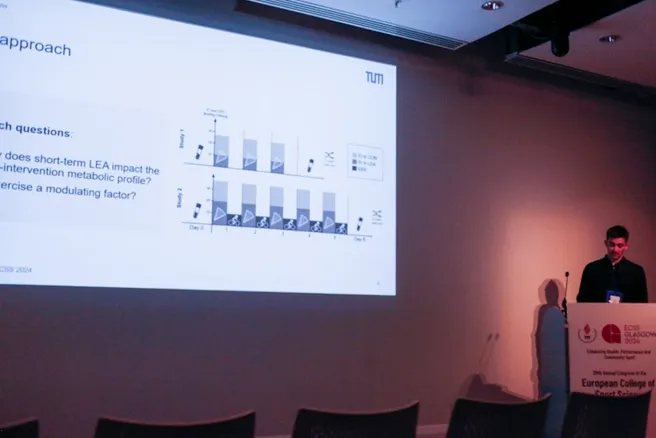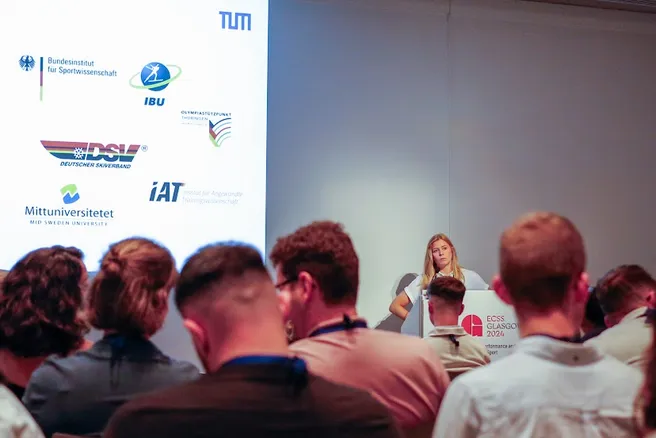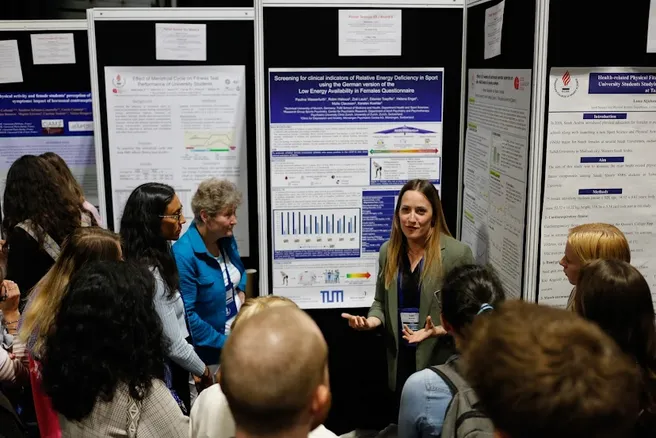From July 2 to 5, 2024, the 29th Annual Congress of the European College of Sports Science (ECSS) took place in Glasgow hosted by the University of the West of Scotland. Under the motto “Enhancing Health, Performance, and Community Sport,” around 3000 sports scientists gathered to share and discuss current research findings and insights in the field of sports science. The ECSS Congress is one of the leading sports science events worldwide and this year once again provided a platform for lectures, symposia, workshops, plenary sessions, and poster presentations. Additionally, there was an exhibition, SportEx, where the latest testing and sports equipment were showcased.
The Professorship of Exercise, Nutrition, and Health was represented in Glasgow with three presentations given by Dr. Paulina Wasserfurth, Valentin Nusser, and Helena Engel.
Valentin Nusser presented the “metabolic signature” in conditions of low energy availability. Using metabolomics, numerous blood-borne metabolites were measured simultaneously to create a characteristic profile of low energy availability. Compared to traditional methods such as questionnaires, clinical symptoms, or dietary and activity logs, this technique could aid the objective and rapid detection of low energy availability in the future.
Helena Engel presented the results of an applied research project on the topic "Influence of caffeine on biathlon performance during a simulated competition." The positive effect of caffeine on athletic performance, particularly endurance, is well documented in the literature. However, current studies suggest that caffeine could negatively impact upright-shooting performance. Therefore, the aim of the project was to investigate the influence of caffeine on skiing and shooting performance as well as overall performance in biathlon during a simulated competition. The project was conducted in collaboration with the German Biathlon Team and the Institute for Applied Training Science (IAT - Leipzig) and was supported by the International Biathlon Union (IBU).
On Friday, Dr. Paulina Wasserfurth presented her poster titled “Screening for clinical indicators of Relative Energy Deficiency in Sport using the German version of the Low Energy Availability in Females Questionnaire.” In her work, cases of REDs (Relative Energy Deficiency in Sport) were categorized for the first time using the Clinical Assessment Tools of the International Olympic Committee and validated with the German version of the LEAF-Q questionnaire. According to the study, the German LEAF-Q questionnaire is a good screening tool for identifying the risk of REDs and thus helps in detecting low energy availability in female athletes.
More information regarding the event can be accessed here.


